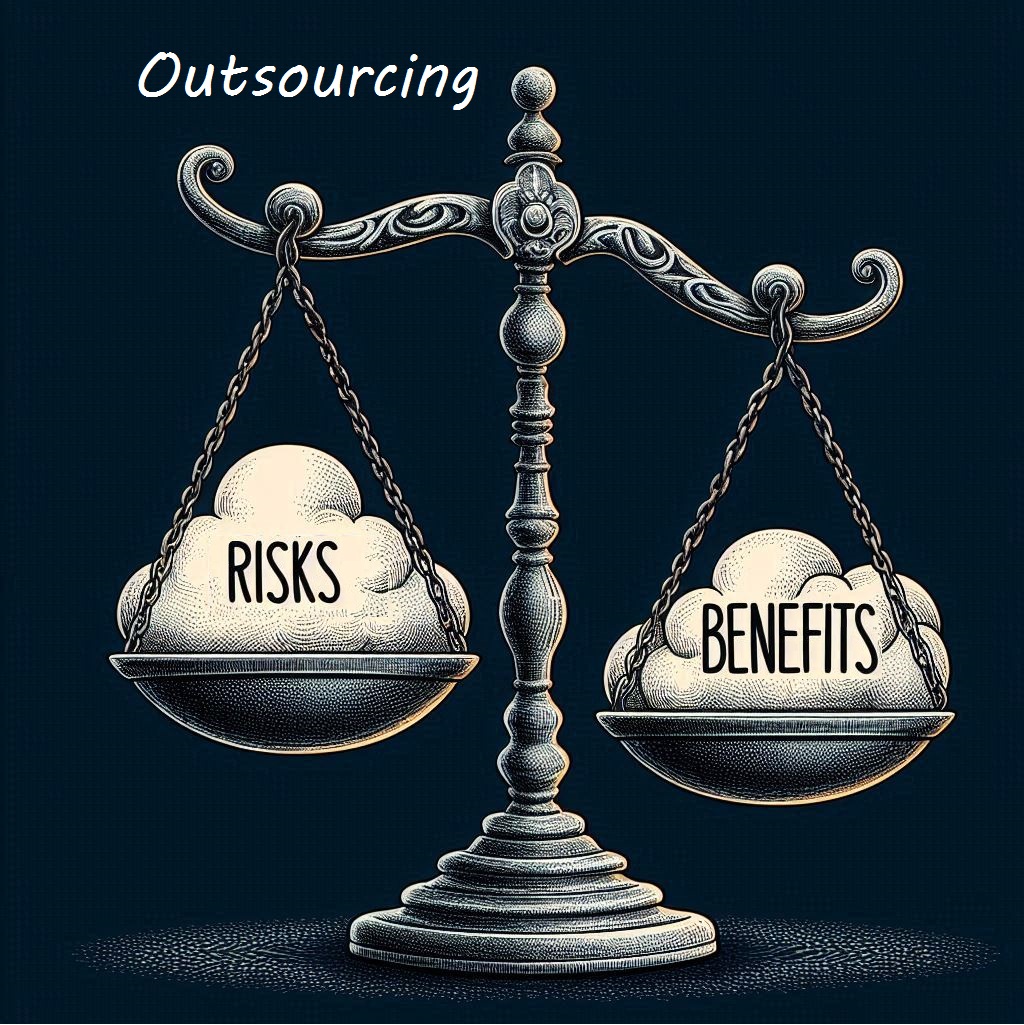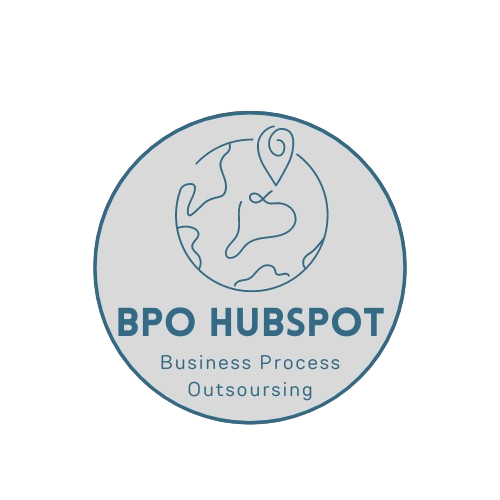Outsourcing: Weighing the Benefits and Risks for Your Business
This article explores the key advantages and risks of BPO, offering valuable insights for SMEs considering outsourcing as a strategic option.

Introduction
In today’s competitive business landscape, small and medium-sized enterprises (SMEs) face numerous challenges in managing their operations efficiently while striving for growth. One solution that has gained significant traction is Business Process Outsourcing (BPO). BPO involves the delegation of specific business processes to external service providers, allowing companies to focus on their core competencies. For SMEs, BPO can be a game-changer, providing access to specialized expertise, advanced technologies, and cost-saving opportunities. This article explores the key advantages and risks of BPO, offering valuable insights for SMEs considering outsourcing as a strategic option.
Advantages of BPO
Focus on Core Business One of the primary advantages of BPO is that it allows companies to concentrate on their core business activities. By outsourcing routine administrative processes such as payroll, accounting, and inventory management, SMEs can redirect their resources and efforts towards activities that drive growth and innovation. For instance, a small tech startup can focus on developing new products and expanding its market reach while a BPO provider handles its back-office functions. This strategic focus enhances the company’s overall productivity and competitiveness.
Cost Reduction Cost reduction is a significant benefit of BPO. SMEs often operate with limited budgets and resources, making it essential to find ways to minimize expenses without compromising quality. BPO providers offer cost-effective solutions by leveraging economies of scale, advanced technologies, and specialized expertise. By outsourcing functions like customer service, IT support, or human resources, SMEs can save on infrastructure costs, employee salaries, training, and benefits. These savings can then be reinvested in the company’s core operations, fostering growth and development.
Access to Technology and Specialized Talent BPO provides SMEs with access to cutting-edge technologies and highly skilled professionals that may otherwise be out of reach. Outsourcing partners invest in the latest tools and platforms to ensure efficient and accurate service delivery. This access to advanced technology enables SMEs to benefit from innovative solutions without the need for significant capital investment. Additionally, BPO providers employ experts in various fields, offering specialized knowledge and skills that can enhance the quality and effectiveness of the outsourced functions. This access to top-tier talent and technology can be a significant competitive advantage for SMEs.
Improved Efficiency and Productivity BPO can lead to significant improvements in efficiency and productivity. Outsourcing partners specialize in specific processes and have streamlined workflows to maximize efficiency. By leveraging their expertise, SMEs can achieve faster turnaround times, higher accuracy, and improved service levels. This enhanced efficiency allows the company to operate more smoothly and respond quickly to market demands. Furthermore, by outsourcing non-core functions, internal teams can focus on strategic initiatives and high-value activities, leading to better overall performance.
Flexibility and Scalability Flexibility and scalability are crucial advantages of BPO. As SMEs grow and their needs evolve, they require adaptable solutions that can scale with their business. BPO providers offer flexible services that can be tailored to meet changing requirements. Whether it’s handling seasonal fluctuations in customer demand or expanding into new markets, outsourcing partners can quickly adjust their services to accommodate the company’s needs. This flexibility allows SMEs to remain agile and responsive in a dynamic business environment.
Better Risk Management BPO can enhance risk management for SMEs. Outsourcing partners have robust security measures, compliance protocols, and disaster recovery plans in place to mitigate risks. By partnering with a reputable BPO provider, SMEs can benefit from these established risk management practices, reducing the likelihood of operational disruptions, data breaches, or compliance issues. Additionally, outsourcing can help distribute and manage risks across multiple functions and locations, providing a more resilient and secure business operation.
Risks of BPO
While Business Process Outsourcing (BPO) offers numerous advantages, it also comes with certain risks that SMEs need to consider. Understanding these risks and implementing mitigation measures can help ensure a successful outsourcing experience. Here are some of the primary risks associated with BPO:
Loss of Control
Risk: Outsourcing certain business functions can lead to a perceived or actual loss of control over those processes. Companies may feel disconnected from the operations managed by the BPO provider.
Mitigation: Establish clear communication channels and governance structures. Regular meetings, detailed service level agreements (SLAs), and performance monitoring can help maintain control and ensure alignment with business objectives.
Geographical Distance
Risk: Physical distance between the SME and the BPO provider can create challenges in coordination and communication.
Mitigation: Utilize advanced communication and collaboration tools such as video conferencing, project management software, and real-time messaging platforms to bridge the geographical gap. Schedule regular check-ins and visits to the BPO provider’s location if feasible.
Language and Cultural Barriers
Risk: Differences in language and culture can lead to misunderstandings and miscommunication, affecting the quality of the outsourced work.
Mitigation: Select BPO providers with cultural alignment and language proficiency. Provide cultural sensitivity training for both parties and establish clear communication protocols to minimize misunderstandings.
Quality Assurance
Risk: Ensuring the quality of the outsourced work can be challenging, especially if the BPO provider does not adhere to the company’s standards and practices.
Mitigation: Implement rigorous quality assurance processes, including regular audits, performance reviews, and feedback mechanisms. Define clear quality metrics and expectations in the SLAs.
Data Security
Risk: Outsourcing involves sharing sensitive data with the BPO provider, which can pose security risks if not managed properly.
Mitigation: Conduct thorough due diligence on the BPO provider’s security protocols. Use encryption, secure data transfer methods, and access controls to protect sensitive information. Regularly review and update security measures.
Time Zone Differences
Risk: Different time zones can complicate communication and coordination, potentially leading to delays and inefficiencies.
Mitigation: Establish overlapping working hours and clear communication schedules to ensure timely responses and coordination. Use asynchronous communication tools to manage tasks and updates across different time zones.
Summary Table of Benefits and Risks
Benefits | Risks |
|---|---|
Focus on core business activities | Loss of control |
Cost reduction | Geographical distance |
Access to technology and specialized talent | Language and cultural barriers |
Improved efficiency and productivity | Quality assurance |
Flexibility and scalability | Data security |
Better risk management | Time zone differences |
Conclusion
In conclusion, Business Process Outsourcing (BPO) offers numerous advantages for small and medium-sized enterprises (SMEs). By allowing companies to focus on their core business activities, reduce costs, access advanced technology and specialized talent, improve efficiency and productivity, and enhance flexibility and risk management, BPO can be a strategic tool for growth and success. While there are risks associated with outsourcing, careful selection of reliable partners and effective management of the outsourcing relationship can help SMEs maximize the benefits of BPO.
Ready to share your perspective? Feel free to leave a comment.

